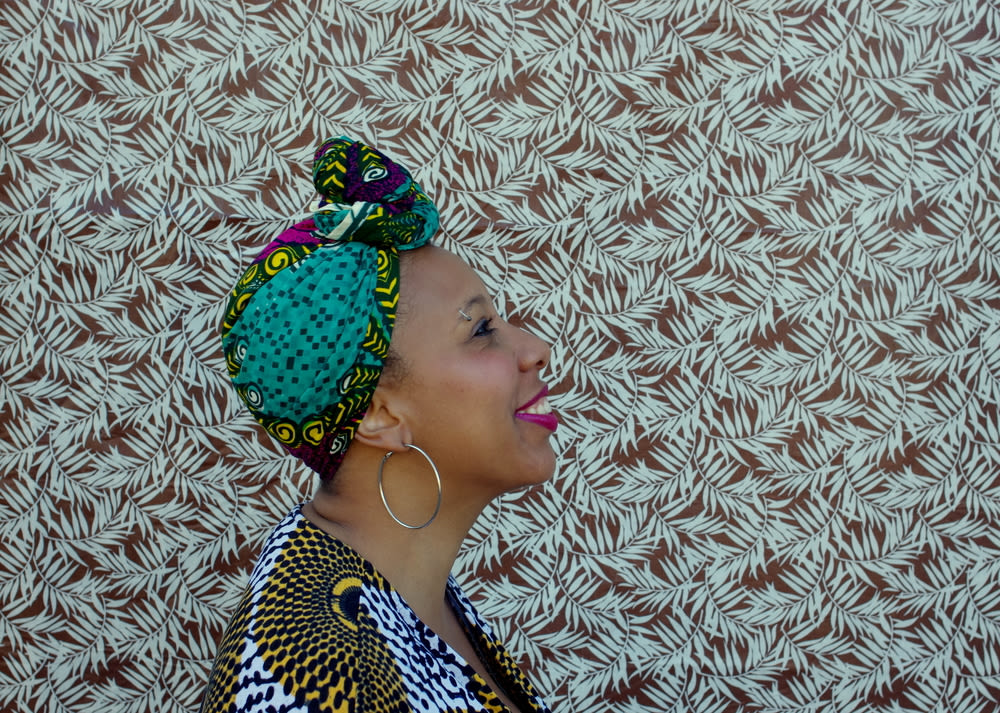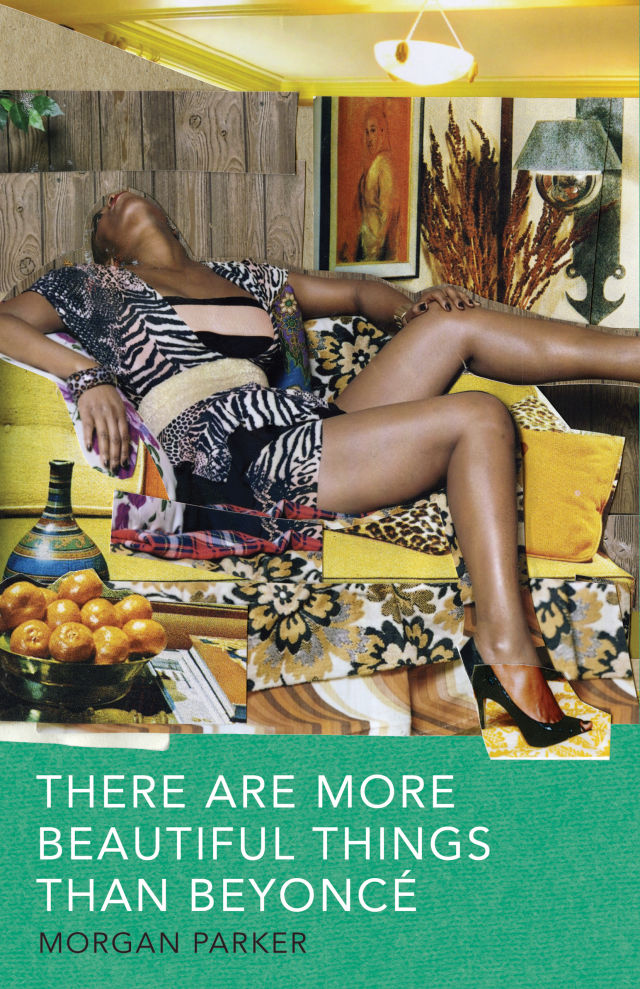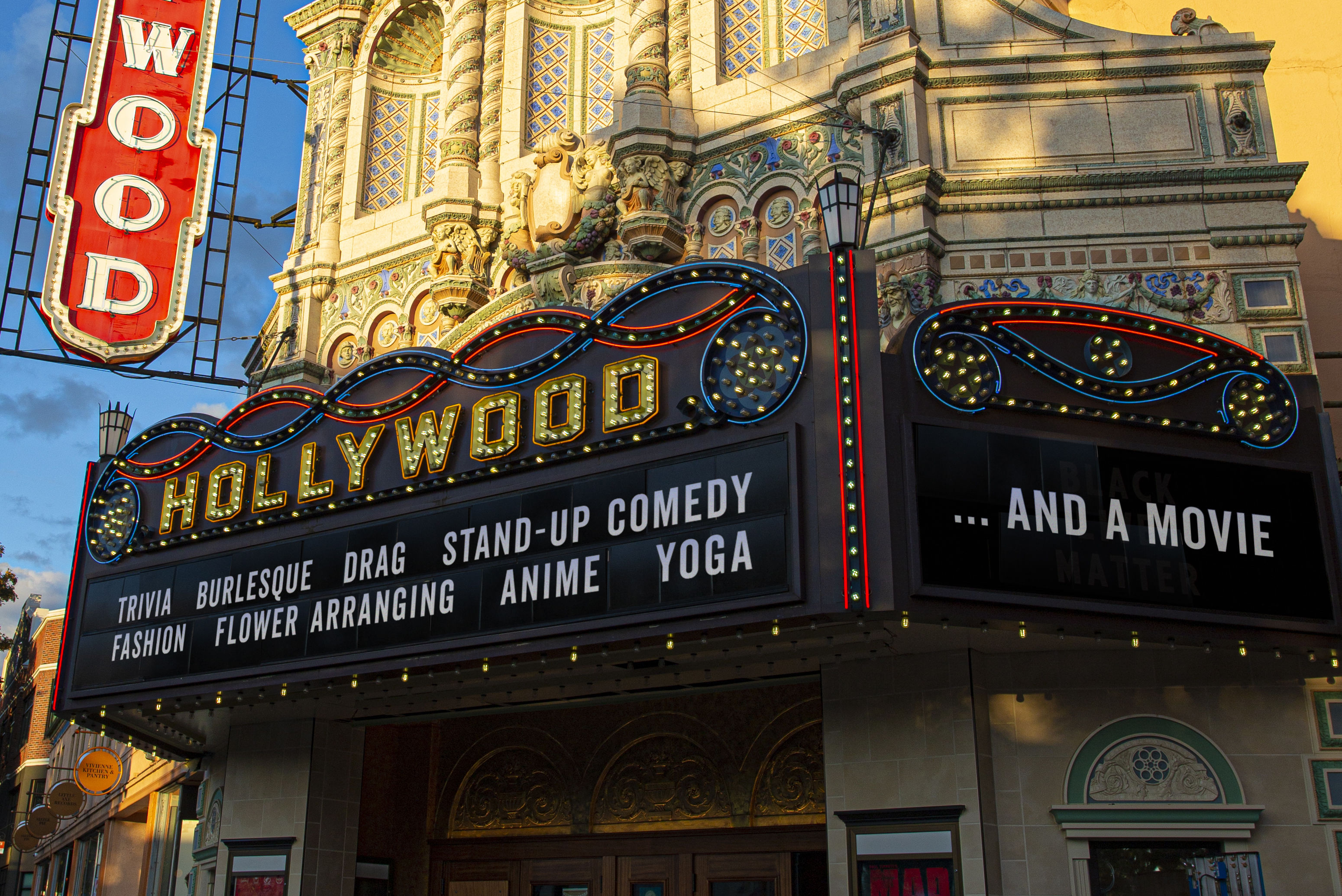Morgan Parker Turns Beyoncé and Gin-Soaked Olives into Electric Poetry

Morgan Parker
Image: Courtesy Kwesi Abbensetts
Morgan Parker’s poems are born, she says, of consumption: a steady drip (and sometimes heady shots) of Real Housewives and Top Chef and Law & Order, and also YA literature and novels set in the '70s and Foucault. There’s little question what Parker was consuming while at work on her latest book, There Are More Beautiful Things Than Beyoncé, published in February by Tin House. The title is a nervy assertion (back off, Beyhive: Parker has made clear she loves Queen B), held up by poems that mine pop culture, sex, politics, and mental health for an electric, engrossing exploration of black womanhood.
Parker hits Portland for a one-two punch of events this weekend: she’ll be at Powell’s on Friday, March 10, and she’ll do a reading on Saturday, March 11 within Portland Art Museum’s Constructing Identity exhibit, which is devoted to the work of black artists (more on that show here). High school poets will join her for the latter appearance.
Ahead of her visit, we talked with Parker about high versus low art, her book's amazing cover image, and the perennial shortage of cocktail shrimp. (Want to read some of her poetry yourself? Find it here and here.)
You’re doing two readings in Portland: one at Powell’s and one at the Portland Art Museum. How did the PAM event come about?
This book is really connected to visual art, and there are a lot of visual artists I reference. There’s something about the crossover of different forms of art that I’m really interested in—something becomes more activated when it has a backdrop of amazing visual art, or when it has a soundtrack. I really love being in museums, especially if I feel like the work is taking on some of the same tasks as my work. I was really interested in this exhibition and thought it could be a cool conversation between the artwork and my work.
What’s the role of the high school poets?
They will be reading as openers. I’m really excited about it—it just sounds adorable, and it’s so different than any other reading I’m doing. As a writer and an editor and an educator, I feel it’s really important to connect with other generations. It keeps the work and the writing process alive. Often we just look up, but I think it’s important to remember to look up and down at what other writers are doing.

Image: Courtesy Tin House
The cover of your book features an arresting, original photo-collage by Mickalene Thomas (who also has work in PAM's Constructing Identity exhibit). What’s the story behind that image?
I’ve admired her work for a really long time and have drawn inspiration from it for sure. I think that a lot of the ways we’re engaging with black womanhood is similar. Her work is complex; it’s not always traditionally beautiful; and there’s a lot of glitz and glam. She has many works where she’s referencing classic artwork, European art, and I love that she’ll replace many of the figures with black women, and I also love that she’ll put glitter and sequins on it. A lot of the book is about beauty and different perceptions of beauty, and she definitely takes that on.
Something she and I talked about in terms of the cover was that the viewer has to confront the body of the black woman. That is something I also try to do with the work: you can’t turn away. You can’t ignore the voice of the speaker, in the same way you can’t ignore the gaze of the woman in her work. What I love about the cover image is the doubleness. She’s either really relaxed—she looks like her head could be thrown back in laughter—or exhausted. It’s all of the above. That’s part of the book: there’s exhaustion but there’s also pleasure. There is humor and grief, and those things exist all at once within the same body.
I love the poem "99 Problems," which roams from those big things you’re talking about—exhaustion and grief and oppression—to more trivial things like “limited cocktail shrimps” and “my dog eats a lipstick.”
I talk a lot about this false idea of high versus low art, and thinking about capital-P poetry and Beyoncé. Sometimes it’s confusing or shocking for folks, and I really wanted to push that to the limit, to the concerns of a modern-day black woman. It’s not about one problem being bigger than another—it’s just about the fact that they all do exist. The presence of one doesn’t make the other one go away or any less annoying. It’s annoying when my dog eats the lipstick I literally just bought for $10. Part of that is playing with expectations, and part of it is providing levity. All right: I’m going to say something that’s really scary and true and painful, and then also make a joke. There’s something about that that feels important, that feels like processing.
It’s a listicle as a work of art.
I think "99 Problems" feels organic, in a way. Like, yeah, oppression, but also this other thing. And now that I think about it, this thing, too! It’s a momentum thing. It can be easy to write someone off if they’re just talking about minor annoyances, but it can also be easy to write someone off if they’re only ever talking about the heaviest things in the world, because that isn’t authentic either. Why is it so painful? It’s because of the accumulation of all these things. It’s not just oppression, but also these annoying things: men looking at you the wrong way, or never enough of those cocktail shrimp. I don’t know what the deal is with those things. There’s never enough of those at a party. Ever.
Do you get pushback about all the pop culture in your poetry?
Yeah. More when I was younger, like when I was in grad school. Luckily I did it anyway. It’s too easy for people to assume that pop culture references make it light or fluffy or superficial. The poems aren’t light or superficial or a joke. It’s asking folks to open their minds about what is high art, what is legitimate, what is serious? And why do we think art has to be only serious? And, for me, it’s just the truth. I’m thinking about oppression and politics and theory and all kinds of crazy things, but I’m also on Twitter. It would be really awkward and inauthentic if I wrote an entire book that did not mention Real Housewives. That doesn’t make sense to me, and it’s not the full picture. There’s value in presenting the full picture. A lot of the book is about performance and putting on masks, and the way we move in spaces and try to present ourselves in particular ways. I think it can be really dangerous to try to ignore 50 percent of yourself, or be ashamed of it, and just present best foot forward. How about both feet?
As far as presenting both feet, mental health is another theme of your work.
There needs to be more discussion of that. When I was growing up and was first diagnosed with depression and anxiety, I was so ashamed, and hid it for a long time. I spent so much of my life being very ashamed of it, letting it eat away at me and be something I had to battle on my own. The least I can do for myself, and anyone else who’s in that position, is just keep talking about it and trying to normalize it. I would love to live in a world where there isn’t fear about saying it, where people aren’t like, “Maybe you shouldn’t have mentioned your therapist on the first date.” Why not?
Now that you don’t have to pore over Beyoncé as much, what are you reading or watching or otherwise obsessing over?
I’m still watching trashy TV, Housewives and Top Chef and all of that stuff. I’m reading some YA novels about bad teenagers, which is amazing, and I’m reading a lot of my friends’ poetry books. I’ve been reading novels set in the ’70s, weirdly. And I’m always on the side reading different types of theory, so I recently went back to Foucault. It feels important for me to hold those things in my head at the same time. I watch a lot of TV—my TV is on, even if I’m not watching it. If there’s a Law & Order marathon, it’s just on my TV all day, even though I’ve seen all the episodes. I’ve been randomly watching a lot of The Bernie Mac Show. Sometimes I just think, ‘It would be cool to write a poem and use this as a lens.’ So I’ll go really deeply into something. Sometimes it doesn’t work. But it is fun to be like, let me immerse myself in this one thing and see how it comes out in a text.
I read that you’re working on a YA novel yourself…?
Yeah, I am working on it, but it’s taking a long time because I’ve never written fiction before. It’s an interesting thing to teach yourself. It’s me wanting to do it on behalf of my past self, and on behalf of anyone in a situation like that. When I was depressed growing up, I was reading Prozac Nation and The Bell Jar. Those are fantastic books and they helped me quite a bit, but I wonder what additional help I could have had if anyone in the books had looked like me or had some of the same the life experiences I’d had. It’s something that’s missing in the world, and I’m trying to correct that.
Morgan Parker reads at Powell’s on Friday, March 10, and at the Portland Art Museum on Saturday, March 11.




